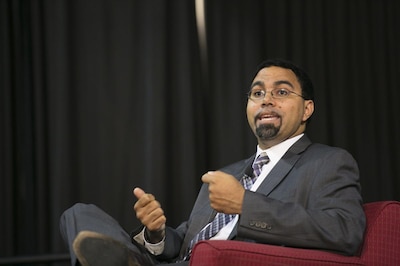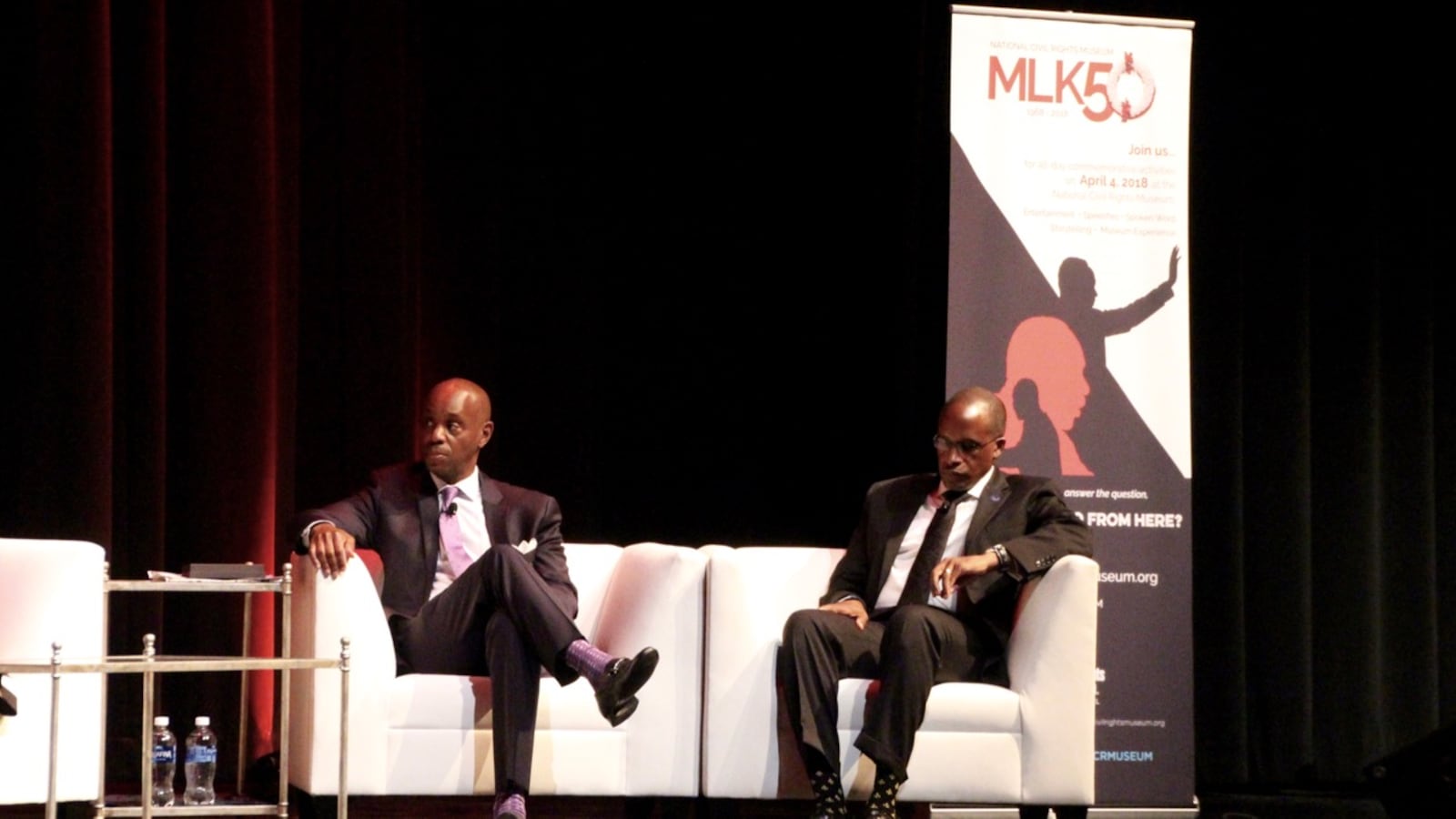Five decades after the assassination of Martin Luther King Jr., segregation remains a major barrier to achievement for students of color. That was a key theme for education leaders who came to Memphis to mark the 50th anniversary of King’s death.
King was famously passionate about education, once saying, “To save man from the morass of propaganda, in my opinion, is one of the chief aims of education. Education must enable one to sift and weigh evidence, to discern the true from the false, the real from the unreal, and the facts from the fiction.”
As part of a series of events around “MLK50,” a panel on education was held Tuesday by the University of Memphis and the National Civil Rights Museum.
Memphis Superintendent Dorsey Hopson joined former U.S. Education Secretary John B. King, Walter Kimbrough, president of Dillard University, and Karen Harrell, vice president of early childhood services at Porter-Leath, for the discussion.
Here are three things we heard about the state of schools in Memphis and beyond, 50 years after the death of King:
1. To really achieve educational equity, widespread change is needed. But it’s a hard sell.
Both John King and Hopson described school segregation as a major barrier to more equitable schools and a more just society.

“Resources follow white, middle class, and affluent kids,” King said. “That’s a reality of our society.”
In Memphis, Hopson said, school segregation was fueled again recently by the 2014 exodus of six suburban districts after a historic merger between the city and county school systems. (For a deep dive on segregation in Shelby County, go here).
“We have an interesting scenario in Memphis with the merger and demerger,” Hopson said. “It’s not a secret that these (suburban) districts left the poorer district that has more kids of color.”
But when asked if Shelby County had the political will to make integration happen, Hopson wasn’t optimistic.
“We see this throughout the country: If you’re intentional to integrate schools, it leads to better outcomes for all of those kids,” he said. “But we don’t have the appetite in Shelby County. It’s not just a race thing, it’s an economic thing, too…People don’t want to send their kids to school with poor, black kids.”
2. Early childhood education is at a “crossroads.”
King told the crowd that investment in early childhood education is growing across the nation, thanks to a willingness of business and communities to invest in it.
“There’s statistics now that show communities can get a significant return on their investment when it comes to early childhood,” he said. “But only if it’s high quality. If it’s not high quality, we’re seeing people throw up their hands and say they’ll take their money elsewhere … There’s real tension around getting folks to trust that we’re going to deliver on the quality promise.”
Memphis, too, is at a crossroads as nonprofits are pushing to raise the level of early childhood education. Harrell of Porter-Leath, the largest preschool provider in the city, said during the panel that high-quality centers exist, but they aren’t cheap.
“You have to budget to run high-quality centers,” Harrell said. “That’s what we’re talking about here — how do we step in and help lift up other childcare providers in the city? This is expensive work.”
3. Teachers have power, and they should be better recognized for it.
Each panelist was asked who the most influential teacher was in their life, and for King, it was a teacher whom he said saved his life after his parents died.
“When home was scary, unpredictable, and lonely, this classroom was safe, engaging, and a place I felt love and supported,” King said. “That’s the difference a teacher can make.”
But the value and relevance of teachers, in particular of teachers of color, has declined over the years, said Kimbrough of Dillard University, a historically black college.
“Teachers are on strike because they don’t feel valued,” Kimbrough said of recent teacher strikes across the country. “We need to radically rethink how we incentivize people wanting to become teachers, and teachers of color in particular.”

